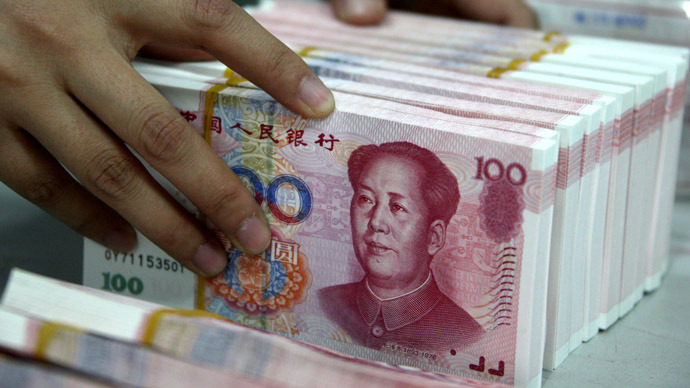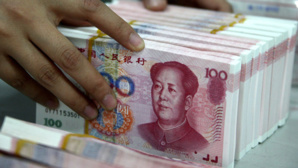The People's Bank of China warned investors about the "two-way volatility," which is awaiting the yuan in the near future, according to Financial Times. At the same time, in a statement issued on Sunday, the Central Bank chief economist Ma Jun said that the Chinese government "does not intend, and does not consider the need to be engaged in currency wars".
Recall, that last week, China's central bank devalued the currency twice, prompting fears of experts that the yuan can be artificially reduced in the future, what could eventually provoke a reaction from other states and lead to currency wars. But the central bank insists that the first devaluation of the yuan, which had occurred on Tuesday, was a one-time measure, coupled with the "reform of the RMB exchange rate." The next day, the yuan was devalued again - the government explains this step by the need to protect the currency from a free fall. Mr. Ma also said that henceforth the central bank will intervene only in "exceptional circumstances" to prevent "excessive volatility" of the course.
As a result, the Chinese government has managed to reassure investors: today the yuan has stabilized against the dollar, and shares the Shanghai Stock Exchange went up. The Shanghai Composite Index is up after trades on 0.7% and reached 3994.37 points.
Why world markets see provocation in the yuan advancing to the world standards
Chinese national currency ahve lost about 3.5% against the dollar for two days last week - The People's Bank of China continued to devalue the yuan. What is happening are the first effects of the introduction of a more flexible exchange rate regime in the PRC and the yuan approaching fully convertible. However, the markets took this as a signal to open China's "currency war" in order to support the national economy - and, more importantly, as a definite threat to delay the decision on the US Federal Reserve key interest rate in September 2015.
source: ft.com
Recall, that last week, China's central bank devalued the currency twice, prompting fears of experts that the yuan can be artificially reduced in the future, what could eventually provoke a reaction from other states and lead to currency wars. But the central bank insists that the first devaluation of the yuan, which had occurred on Tuesday, was a one-time measure, coupled with the "reform of the RMB exchange rate." The next day, the yuan was devalued again - the government explains this step by the need to protect the currency from a free fall. Mr. Ma also said that henceforth the central bank will intervene only in "exceptional circumstances" to prevent "excessive volatility" of the course.
As a result, the Chinese government has managed to reassure investors: today the yuan has stabilized against the dollar, and shares the Shanghai Stock Exchange went up. The Shanghai Composite Index is up after trades on 0.7% and reached 3994.37 points.
Why world markets see provocation in the yuan advancing to the world standards
Chinese national currency ahve lost about 3.5% against the dollar for two days last week - The People's Bank of China continued to devalue the yuan. What is happening are the first effects of the introduction of a more flexible exchange rate regime in the PRC and the yuan approaching fully convertible. However, the markets took this as a signal to open China's "currency war" in order to support the national economy - and, more importantly, as a definite threat to delay the decision on the US Federal Reserve key interest rate in September 2015.
source: ft.com






